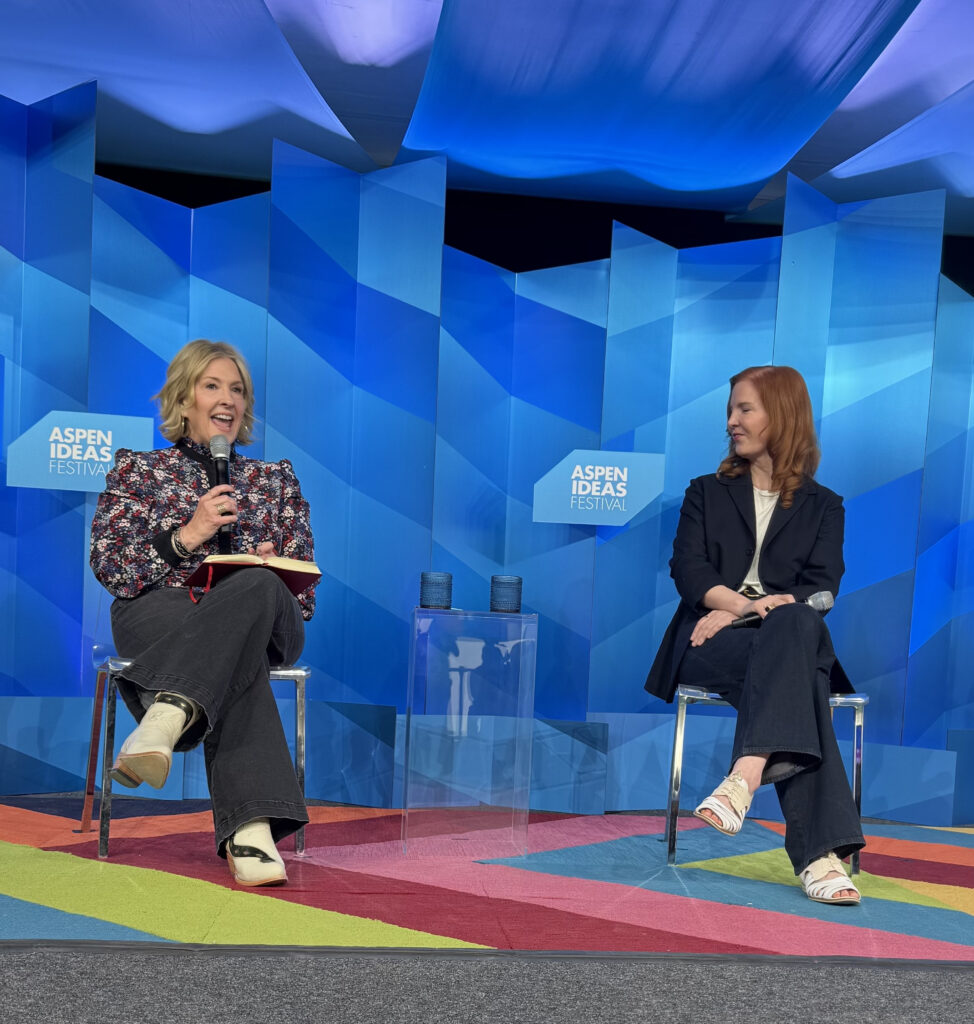(No, not the one you’re thinking of!)
Another session from the Aspen Ideas Festival that really got me thinking was between author and researcher Brené Brown and AI scholar Kate Crawford.
The conversation, “AI and the Human Spirit,” centered around the question, “what does it mean to lead, relate and live well in a world increasingly shaped by machines?”
These days, people will often say, “we’re going to be replaced by AI,” but Crawford argued that we humans are actually becoming more robotic and mechanical to match AI (which, if you know my work, is the opposite of great human leadership).
So what’s at risk when we become more like AI?
Turns out, a lot. We risk losing three critical things that make us human:
Vulnerability
As Brown mentioned, “Being connected with [humans] is messy and hard and requires the ‘V’ word—vulnerability. And it requires building trust.” When we turn to AI for our socialization needs, it becomes “a seductive alternative for tapping out of human vulnerability.”
Being human is a willingness to lean into the messy.
Discernment
Not all information is valuable, but the ability to discern information is! Humans need the ability to discern what’s useful, what’s correct, and when an AI model is hallucinating. Or as Crawford called it, “hallu-citation” (as she’s a researcher).
Remember that Google commercial where a dad asked Gemini to write an inspirational note to his daughter’s favorite athlete? They pulled the ad after backlash from critics calling it a “bleak application” of AI. I couldn’t agree more. After all, isn’t it better to have an imperfect note (even with some possible spelling errors!) from the heart than a perfect one from a computer?
Connection
Crawford wondered what AI will do to a whole generation who grows up with it. She mentioned recent studies finding that kids are using ChatGPT for social connection, which is creating increased feelings of loneliness and alienation, and less time spent with friends and peers.
As Brown reminded us, “We are neurobiologically hardwired for connection. In the absence of genuine connection, 100% of the time, there is always suffering.” So we’d be wise to prioritize real, human connection—especially for and with our kids. And yes, connection is messy, but it’s worth having to clean it up!

While all of this may sound bleak, the solution isn’t to ditch AI altogether. Nor should we use it with abandon.
My approach is to always find the sweet spot: Leverage your technology (including AI) but also prioritize vulnerability, discernment, and connection with real humans. Aka, learn to put the tech in its place. You’ll find that it’s not only good for people, but it’s critical for business.
7/16/25

